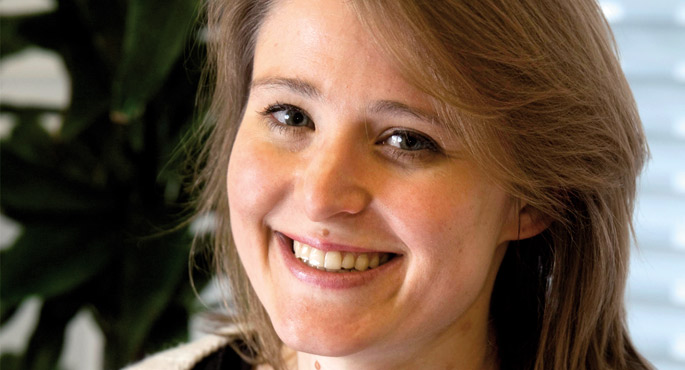Scotland is also shaking the people of Wales
- Many people in Wales wonder what they are going to do tomorrow, without Scotland, next to England. The Welsh nationalists who campaigned for 'yes' in the Scottish referendum have taken the opportunity to re-include sovereignty on the political agenda and influence the citizens who are always reluctant on these issues.

The Welsh voted in favour of the "no" vote in the Scottish referendum: 21% of the Scots were in favour of the "yes", 64% against and the rest in doubt. Wales is certainly not Catalonia, nor is it Basque Country. Despite the fact that it has maintained its own language with force in comparison with Scotland, political demands are far behind. But the tragic Scottish has also rocked here.
The institutions that measure public opinion – the state Your Gov, the university of Cardiff – have shown that since May there has been a proliferation of supporters of both Scotland and Wales achieving independence. The independence position, which has been limited to 10 per cent, has increased to 17 per cent in September.
The Welsh nationalists are pleased with what has been seen in recent months. Scottish writer Angharad Tomos, who has been interviewed by The Guardian, has participated in the campaign that has taken place. “It’s been wonderful. I've been with women's groups, I've talked to young people, debates have been ingenious and creative. Something big is happening (...) In Wales it's going to be a long time, I've turned 50, but maybe I see independence."
Thomas knows the arguments against the sovereignty of Wales: that it is too weak a country to go on its own, too small for Europe, too confused with England as in the economy as well as in infrastructure and that people are not hungry for independence. “But we are poor not because of a lack of natural resources, but because Westminster always commands us and against us. There's a lot of people who have to go to food banks, and I never thought we'd get there. There is so much unemployment that young people despair and leave.”
The issue of self-government and sovereignty has led the Scots to talks and has particularly affected the nationalist party Plaid Cymru. If he had delayed independence in his writings, he had to quickly withdraw the powders into his strategies.
The President of Plaid Cymru, Leanne Wood, has participated in the ‘yes’ campaign in Scotland. He recognizes the journalists who have come back from the surprise trip. On the one hand, excited by the degree of controversy he has encountered. When citizens from all over the West have escaped politics, in Scotland they have found citizens informed about the referendum and who wanted to give their opinion, as taxi drivers to the hosting servers.
But Wood has also gone crazy with the elements of the debate in Escocia.Es saying that when deciding the option, citizens are not thinking about the currency they should have with independence or the place that the European Union will occupy as much as in the taxes on housing, social services, etc.
“I participated in the Radical Independence campaign at a meeting where port workers talked about workers’ rights, decent wages and employment. You will realize that this has not been mentioned for some time in the Westminster Parliament.” Leanne Wood has always stood up as a Socialist and a Republican. In 2004, Queen Elizabeth II was referred to in the Welsh parliaments with the slogan “Mrs. He was kicked out of the room by calling "Windsor."
With 641 castles of servant
The Welsh economist Gerald Holtham pointed out the main difference to Katrin Bennhold, who has been asking the New York Times for the contagion between the two countries (“As Scots Weigh Independence, Wales Takes Note”): “We make a quarter hole in our economy.” In other words, the Welsh Government spends GBP 30 billion a year and does not collect more than GBP 17 billion a year in taxes. Far from the proudly raised argument by the independentists in Scotland: 60% of the oil that Europe has is in our area.
In fact, Wales was in a position to use this argument at the beginning of the 20th century, because the steel industry that made Britain so powerful was partly heated by coal here. Just a century ago, in 1913, the carbonero had its most fruitful year: The approximately 233,000 Welsh miners managed to extract 5 million tonnes of land. Today it would still be 233,000 jobs, and Wales has three million inhabitants. But the great crisis of 1929 came and the decline began. In the 1980s, Tatcher gave her the shot.
That is why Peter Florence, head of the Hay de Wales literary conference, says: “We arrived a hundred years too late. If I were Scottish I would vote in favour, but here we cannot clearly pay for being independent.” Instead, the journalist is told by a nationalist entrepreneur named Mr. Price: “Just the other way around, Wales is poor because it’s not independent. But the day has not yet come. Wales must first learn to be a nation.”
Wales is a conquered country, dominated by the English army in 1282. Scotland, for its part, can always claim that its Parliament voted three centuries ago, even if it is forced to do so, and that it meets England. On the contrary, Wales lost seven and a half centuries ago its own laws, school, church and everything that could separate from England. The famous Union Jack flag has the colors of Scotland, not the smell of the dragon of Wales.
“We are the first English colony,” the nationalists say. As in the colonies, the infrastructures are also organized here for the metropolis, the motorways, trains and main roads link each region of West Wales to the east, are not organized from north to south.
The castles in Wales captivate tourists. According to Richard Wyn Jones, who teaches at the University of Cardiff, they witness the dependency: “Wales has 641 castles, we are going to be the nation that has suffered the hardest military occupation in Europe. Now we have to make the way to liberate our brains. Maybe in this century, or in our generation, let's be independent. We have to be prepared.”
The subordination seemed complete: In the 1979 referendum, the Welsh people said no to autonomy. After the Scots got them, in 1997, Wales also said yes. Will it be mobilized again by the Scottish locomotive?
Time passes quickly, even more so after two years so slow and weird by the pandemic. The Scottish Prime Minister, Nicola Sturgeon, announced at the end of June his intention to conduct a further consultation on the country’s independence in October 2023, which leads us to... [+]
Independentziari buruzko bigarren erreferenduma 2023ko urriaren 19an egitea proposatu zuen Nicola Sturgeon Eskoziako lehen ministroak joan den astean. Ezezkoa erantzun dio Boris Johnson Erresuma Batuko lehen ministroak
Eskoziako Parlamentuan egindako hitz hartzean eman du horren berri Nicola Sturgeon Eskoziako Lehen ministroak. Aurkezpenean, kritikatu egin du Erresuma Batuko Gobernuak orain arte ukandako "blokeo jarrera".
Abogatu bezala egiten du lan Txema Monterok. "Nere defendituren batek Frankismoan inork baino denbora gehiago darama... [+]
























